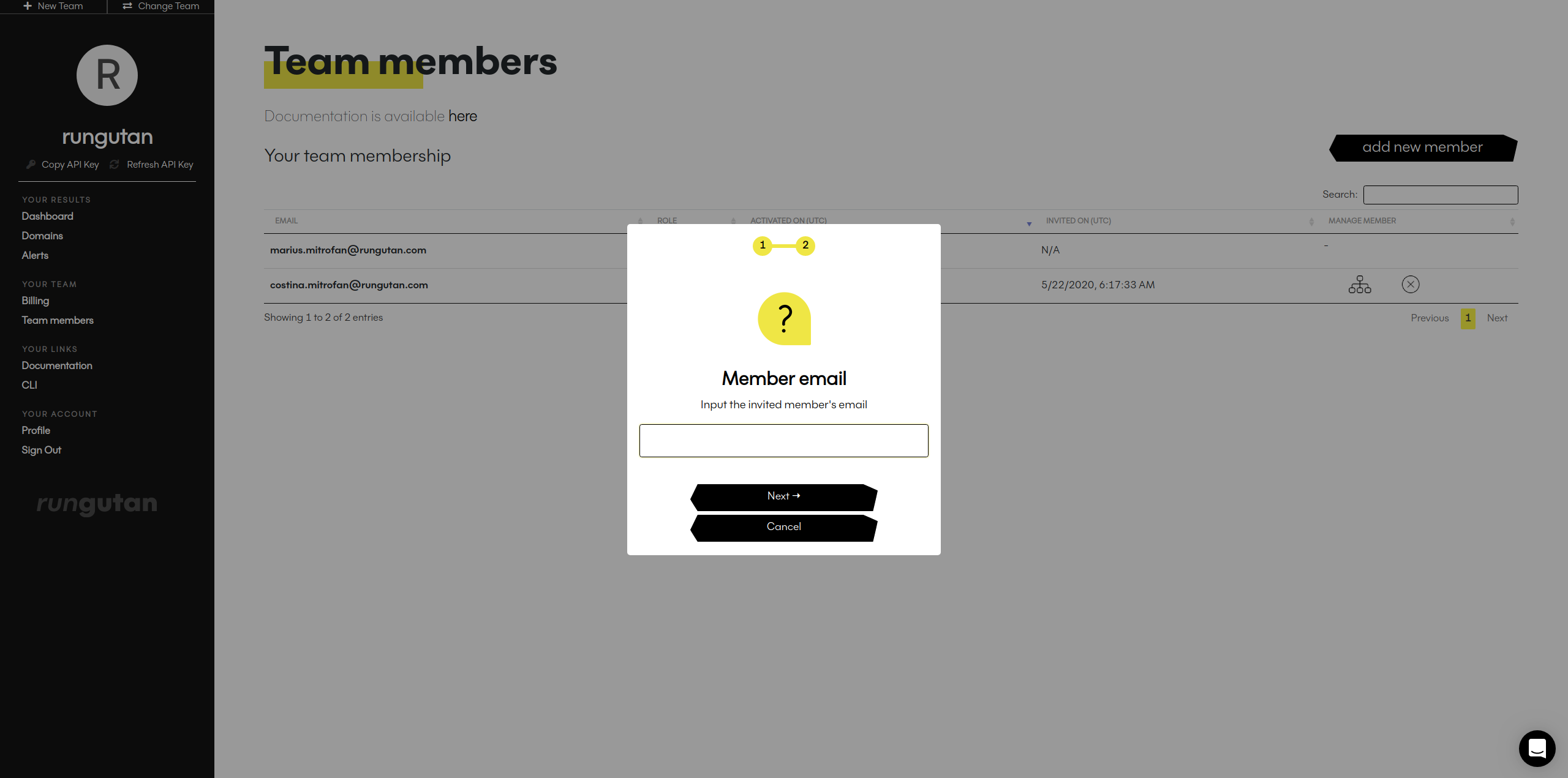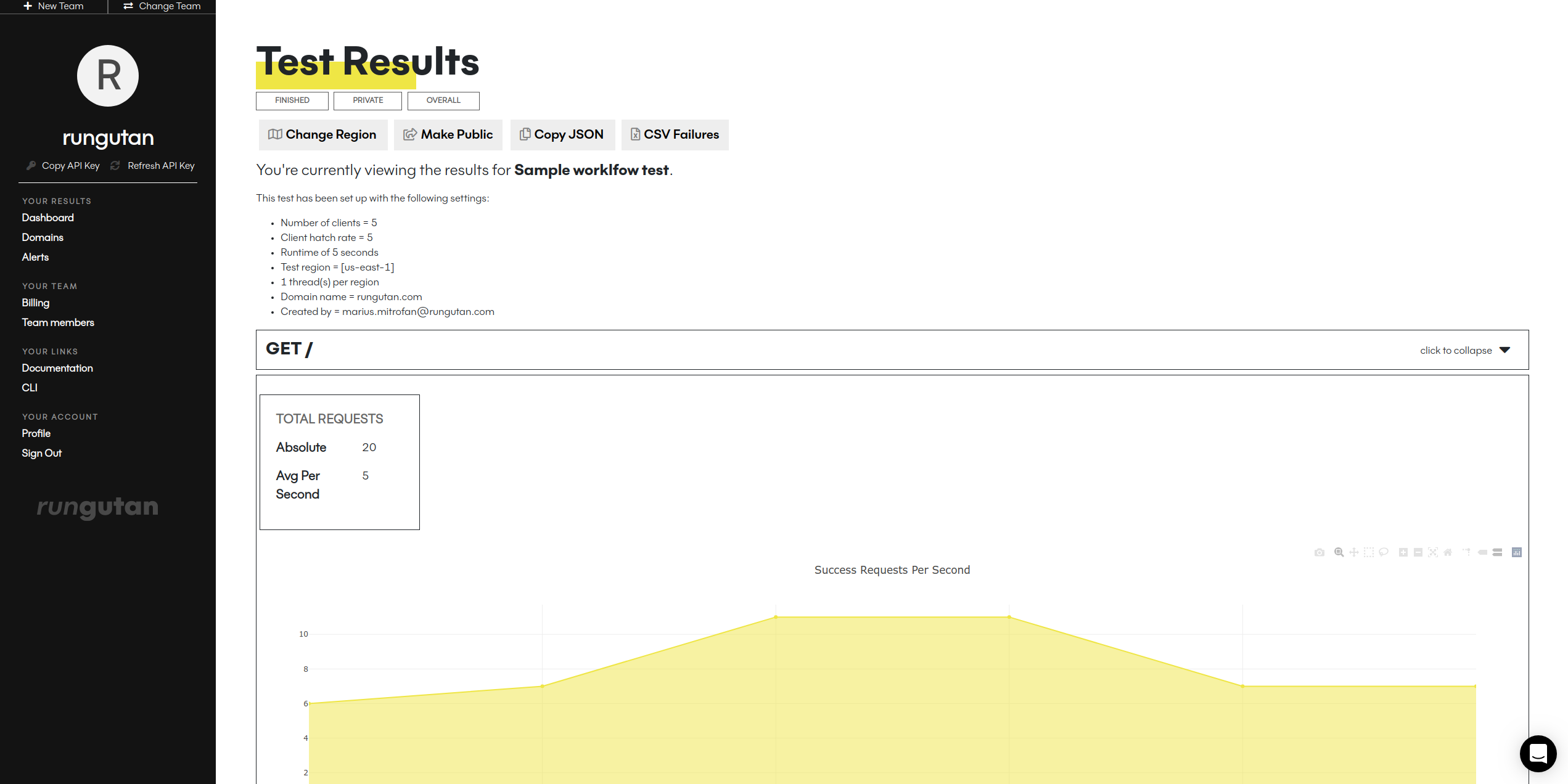// Official specs
Written June 4, 2020
The story of Rungutan begins, as in many other early-stage startups, with a CTO in search of a less time–consuming and more efficient technical Load Testing solution for its clients, when he realized the product he needed did not exist. This was our case as well and that CTO was actually our CTO, Marius, when he was tasked himself to confirm whether a new big streaming platform that was to be launched "soon-enough" would be able to handle 2000 users/second.
After killing ourselves with thousands of tutorials, million of documentation pages from Jmeter and Blazemeter, installing and rebuilding countless JVM environments, we came to the conclusion that this just does NOT work for us, so we decided to build our own Load Testing platform.
There HAD to be a better way to do this!
And now there FINALLY IS!
So, without further ado, say hello to Rungutan -> the first 100% Serverless Load Testing tool designed as API-driven which WILL be accessible for all SMBs, due to its light-weight and highly flexible design!
SaaS Features
+ You simulate workflows
Simply stressing an API call isn't actually Performance Testing, because your users don't just refresh your landing page when they use your platform!
We should be able to WORK TOGETHER, re-use code and view results in a secure cloud-fashioned manner without taking any unnecessary steps.
Here's where we come in to help!
We've developed a powerful solution using a simple JSON editor that allows you to define test cases, generate user interaction, manipulate requests and emulate rich user experience.
Click here to see a GitHub gist example that will:
- Log in to an e-commerce website
- View product categories
- See all products that match a category
- Search for a product
- Add a product to cart
- Add another product to cart
- Go to checkout page
- Set shipping information
- Set payment information
+ You connect
We're in the 21st century now. We shouldn't be copy-pasting code and sending out emails with screen shots of results.
We should be able to WORK TOGETHER, re-use code and view results in a secure cloud-fashioned manner without taking any unnecessary steps.

+ You monitor
We know how hard it is to design highly-scalable and highly-available platforms. And we know that, in some cases, simply adding more servers will not make much difference in sustaining your traffic load.
Each and every release can make or break your platform.
That's why we designed CRON jobs and developed a Rungutan CLI, to help you schedule tests and run them automatically without any user interaction.
There are plenty of integration example already made on our Documentation - Integrations page to get you started.
All you have to do is decide between defining CRON jobs and running a load test at every release. Because now, you CAN.
Run your tests in the background and get alerted via either EMAIL or SLACK whenever your failure threshold gets over the top and never release a feature that can brake your website ever again!
+ You reach more
We built our platform from the ground up to be as scalable and as flexible as you need it to be.
Because we're running our code 100% Serverless, including the actual Load Testers, we're able to let you reach the following specs:
- Concurrently test from 15 global regions
- Generate up to 100 concurrent IPs in each region, up to a total of 1500 concurrent containers with public IPs that run your test case
To make it clear, we can reach up to 10 Million Requests Per Minute at a FRACTION of the COST, as long as your platform can handle it.

Technical Features
We take great pride in our platform's technical features and we think you'll enjoy all of this:
- Real-time performance graphs with 1-second granular visualizations
- Sophisticated analytics and reporting features
- Scriptless load creation
- Supports concurrent load testing from 15 concurrent regions around the globe
- Generate tests from up to 375 concurrent public IPs
- Pre-configured load test templates
- 20x faster test creation and launch
- Integration with CI servers for automated runtime
- Launch schedule-based tests
- Get notified via email or Slack about test failures
- Collaborate with your team to create test cases
- Grant members with granular access to platform's functionalities
- Join multiple teams with the same account
- Brag about your platform's performance using public tests
- Run tests from your terminal using a CLI

